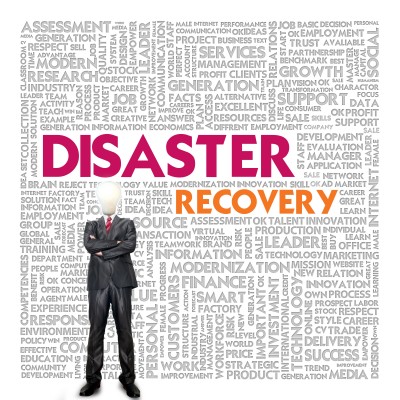The modern organization runs on the most vital resource – knowledge. Access to the most sophisticated and valuable knowledge resources is what enables companies into differentiating themselves from competitors and establishing a sustainable competitive advantage. Right from documentation of processes of the company to the policy statements, records of accounts for each week and month to databases of prospects and established customers, the variety and expanse of data and information in the contemporary company is unfathomable!
Data Is Susceptible To Disasters
Imagine what a deplorable situation it would be for a company to be robbed of all its data, information and knowledge because of any natural calamity or any other disaster. One thing that can enable any organization to get back on its feet after any unforeseen disaster striking it is access to all its stored data. Naturally, every company must lend some time and effort into deciding upon the disaster recovery plan for protecting data. Here, we try to drive home the importance of disaster recovery planning for organizations so that they are able to bear the blows of calamities and turn to their secured date vaults to get their feet back on the success track.
The Gravity Of Making Data Immune From Disasters
You only have to imagine your workplace without any files, both paper and digital, to realize that your company is as good as an infant without its knowledge resources. Moreover, there are so many problems that crop up because of missing documents and files that disaster recovery should be the first planning activity associated with intellectual capital management.
Private And Sensitive Information – You have a huge database of customer information that is sensitive to the consumers, and you can’t breathe easy with such sensitive data under your paperweights. Thus, it is important to store such information in secure formats, a vital decision to be taken in any disaster recovery and business continuity plans.
Accounting Papers – You will have a really tough time satisfying taxation auditors without proper documentation. This makes even small business owners willing to be careful about documenting every sale. With all your sale and purchase records dusted, you will have your worst nightmares making your balance sheets and profit and loss accounts.
Preventing Misuse Of Data – There’s a whole army of hackers and identity thieves targeting data. You really do not want your vital organizational data to be exposed to the evil designs of these people. This means that you’ve got to implement data security means to get over disasters quickly.
Suggestions To Recover From Disasters Quickly
Generally, companies do make copies of documents, both physical and digital. However, the problem with physical files is that the copies are generally stored in the same office, which means that the route to disaster recovery gets gutted with the primary route itself! Make it a part of your data management policy to have physical copies maintained at places other than your office. Of course, sensitive information can’t be blindly entrusted to others. Digital files, on similar lines, can be entrusted to secure cloud services.
About Author
Eva Birleson is an internet entrepreneur, blogger and advocate of paperless business systems.

























Leave a Reply